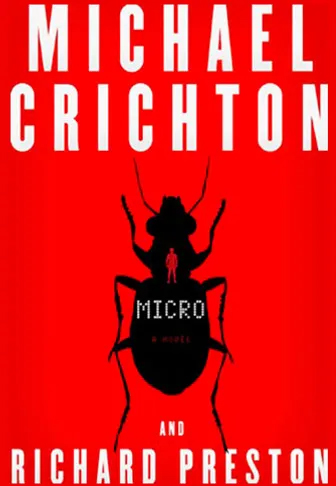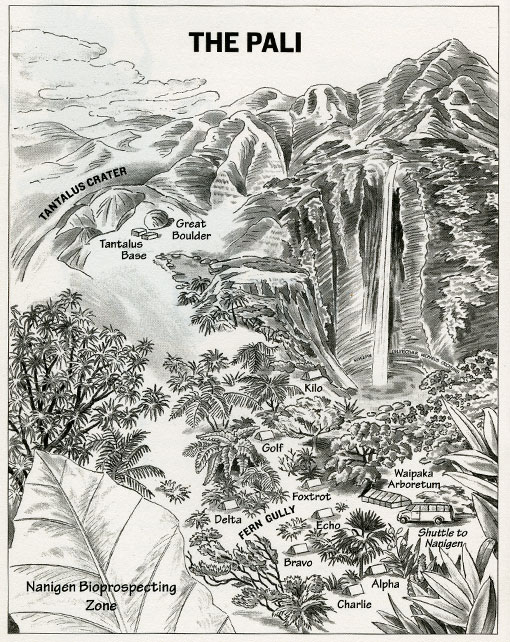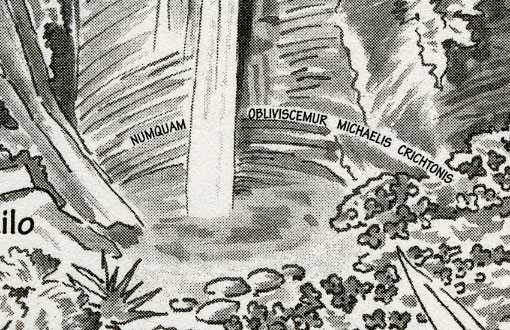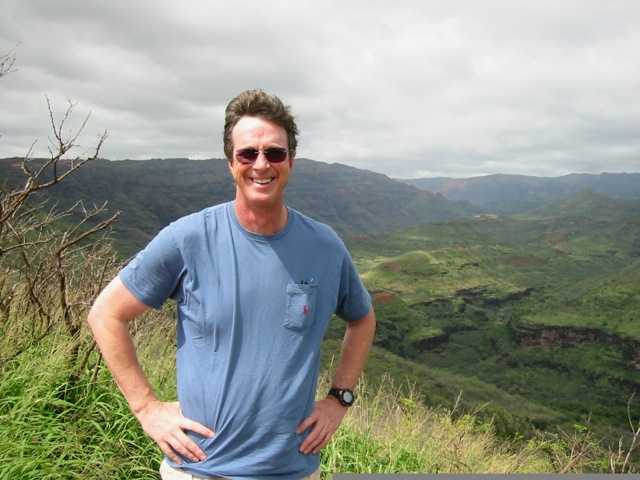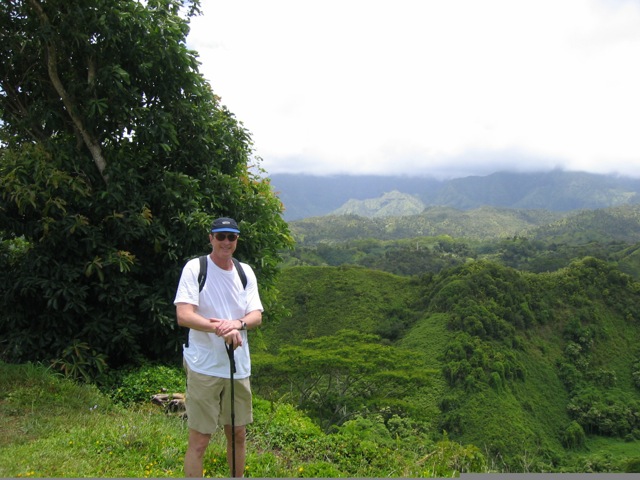Micro
An instant classic, Micro pits nature against technology in vintage Crichton fashion. This boundary-pushing thriller melds scientific fact with pulse-pounding fiction to create yet another masterpiece of sophisticated, cutting-edge entertainment.


Synopsis
In a locked Honolulu office building, three men are found dead with no sign of struggle except for the ultrafine, razor-sharp cuts covering their bodies. The only clue left behind is a tiny bladed robot, nearly invisible to the human eye.
In the lush forests of Oahu, groundbreaking technology has ushered in a revolutionary era of biological prospecting. Trillions of microorganisms, tens of thousands of bacteria species, are being discovered; they are feeding a search for priceless drugs and applications on a scale beyond anything previously imagined.
In Cambridge, Massachusetts, seven graduate students at the forefront of their fields are recruited by a pioneering microbiology start-up. Nanigen MicroTechnologies dispatches the group to a mysterious lab in Hawaii, where they are promised access to tools that will open a whole new scientific frontier.
But once in the Oahu rain forest, the scientists are thrust into a hostile wilderness that reveals profound and surprising dangers at every turn. Armed only with their knowledge of the natural world, they find themselves prey to a technology of radical and unbridled power. To survive, they must harness the inherent forces of nature itself.
Published in 2011 posthumously, Micro was completed by science writer Richard Preston.
In His Own Words
If you have a chance to play in nature, if you are sprayed by a beetle, if the color of a butterfly wing comes off on your fingers, if you watch a caterpillar spin it’s cocoon-you come away with a sense of mystery and uncertainty. The more you watch, the more mysterious the natural world becomes, and the more you realize how little you know. Along with its beauty, you may also come to experience its fecundity, its wastefulness, aggressiveness, ruthlessness, parasitism, and its violence.
Perhaps the single most important lesson to be learned by direct experience is that the natural world, with all its elements and interconnections, represents a complex system and therefore we cannot understand it and we cannot predict its behavior….Interacting with the natural world, we are denied certainty. And always will be….
How then can young people gain experience of the natural world? Ideally, by spending some time in a rain forest—those vast, uncomfortable, alarming, and beautiful environments that so quickly knock our preconceptions aside.
In 2008, the famous naturalist David Attenborough expressed concern that modern schoolchildren could not identify common plants and insects found in nature, although previous generations identified them without hesitation. Modern children, it seemed, were cut off from the experience of nature, and from play in the natural world…children were no longer being exposed to nature and no longer acquiring a direct experience of nature….
From the Archives
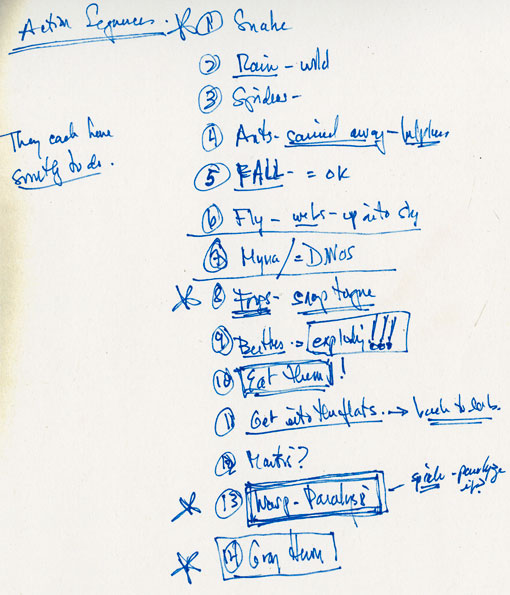

Michael Crichton had written over a third of Micro when he passed away. He also left behind an outline, reference materials and notes which Richard Preston used to complete the book. Here is a sample page of Michael Crichton’s handwritten notes where he was brainstorming potential action sequences for the book:
- Snake
- Rain – wild
- Spiders
- Ants -carried away
- FALL = ok
- Fly – webs – up into sky
- Myna/=Dinos
- Frogs – sharp tongue
- Beetles = exploding!!!
- Eat them !
- Get into the flats -> back to lab
- Mantis
- Wasp – paralyze – spider paralyze it
“Michael was exhilarated by his concept for this novel. He felt he was breaking new ground by introducing his readers to a fascinating, almost unimaginable landscape with real scientific underpinnings. Once again he was ahead of the curve.”
Lynn Nesbit, Michael Crichton’s agent
The subject of the tension between modern man and the natural world was one to which Crichton repeatedly returned throughout his career. In an unfinished introduction to Micro, he wrote,
“Perhaps the single most important lesson to be learned by direct experience is that the natural world, with all its elements and interconnections, represents a complex system we cannot understand nor predict its behavior…Interacting with the natural world, we are denied certainty. And always will be.”
We Will Never Forget Michael Crichton
The illustrated map in Micro contains a special dedication to Michael Crichton. Written at the base of the waterfall is NUMQUAM OBLIVISCEMUR MICHAELIS CRICHTONIS, which means “We will never forget Michael Crichton” in Latin.
Book Covers
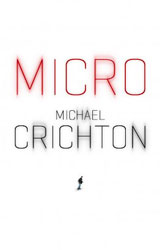

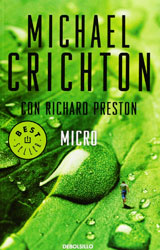

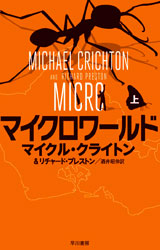

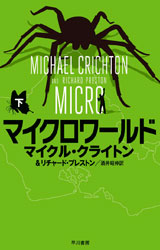

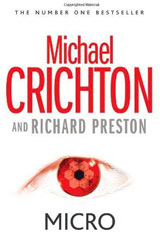

About Richard Preston


Richard Preston is an internationally acclaimed bestselling author of eight books, including The Hot Zone and The Wild Trees. Many of Preston’s books have first appeared in part in The New Yorker. He has won numerous awards, including the American Institute of Physics Award and the National Magazine Award, and he is the only non-medical person ever to receive the Centers for Disease Control’s Champion of Prevention Award for public health. He lives with his wife and three children near Princeton, New Jersey.
Learn more at his Official Website
“When I first read Michael Crichton’s unfinished manuscript, I could practically feel his excitement filling the pages,” Richard Preston said. “Michael was writing at the top of his game, with a grand sense of adventure, into an eerie world that seems almost beyond imagining. For me, it was an irresistible challenge to finish the novel, and I was driven by a desire to honor the work and imagination of one of our time’s most visionary and creative authors.”

